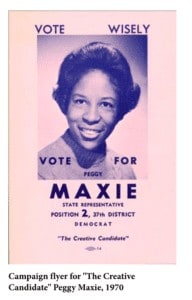
Photo Credit: Erica Hallock (Feb. 8, 2022)
Trivia!
Senator John Lovick (D-44th District, Mill Creek), the first Black man to serve in the State Senate since former Senator George Flemming in 1991, passed his first Senate bill Feb. 2. What was the bill’s subject?
Highlights of the Week
Fiscal Cutoff. Monday was the deadline for bills to pass out of their respective fiscal committee. Both the Senate Ways and Means and House Appropriations Committee finished up just before 9 p.m. that day. The Senate Ways and Means Committee had the longer agenda with 73 bills scheduled for executive session, and the House Appropriations Committee had just 30 bills in executive session and 5 bills on their public hearing schedule.
Part of the reason the House Appropriations Committee took about the same time for a much shorter agenda was the time spent debating two bills – one to extend collective bargaining to legislative staff and another related to creating “middle housing” near transit and in areas typically dedicated to single-family housing. These lengthy debates provided a bit of a preview of bills that will take a lot of time when they get to the Floor.
“Semi In-Person” Floor Action. After the fiscal cutoff on Monday, action quickly pivoted to Floor activity with the deadline for bills to pass out of their house of origin of Feb. 15. This phase in the process coincided with the decision to allow more legislators to return to in-person Floor activity. The Senate now allows up to 30 members on the Floor, after a negative COVID-19 test, and the House increased the number of their members in-person to 20, requiring that all in-person legislators be vaccinated, boosted and masked.
Right as the Senate was beginning an intense period of Floor activity, Lt. Governor (and Senate President) Denny Heck announced a breakthrough COVID-19 case. Fortunately, Lt. Governor Heck is asymptomatic, and Senator Lovick, having served as Speaker Pro Tem during his time in the House of Representatives, smoothly transitioned and presided over much of the Senate Floor activity.
Transportation Budget Released. On Tuesday, Senate and House Democrats released a $16.8 billion transportation package titled “Move Ahead Washington.” You may ask, why I am including an update about a Transportation Budget in a newsletter focused on early learning? There are a few reasons. First, everything in Olympia is interrelated and actions in one area influence others. But the main reason I am including this here is because this Transportation Budget assumes a transfer of $2 billion from the Operating Budget, an unusual move.
A couple of other takeaways – the proposed Transportation Budget does not include a gas tax increase, contains a number of initiatives focused on active transportation (e.g., Safe Routes to Schools) and transit (e.g., free public transit for all youth). Of course, the proposal includes a number of infrastructure investments throughout the state – a chicken in every pot approach.
Legislative Updates
What’s Still Moving? Be sure to check out Start Early Washington’s Bill Tracker on our State Policy Resources page for the latest information on bills. After the fiscal cutoff earlier this week, many early learning related bills are “dead”. A few bills still moving include:
2SSB 5793 – Compensation for Lived Experience. The Senate Ways and Means Committee approved 2SSB 5793 Monday which seeks to provide authority and structure for compensating people with lived experience, who are not otherwise compensated for their participation, to participate in state workgroups, advisory groups, etc. up to $200 a day. The committee approved a substitute bill by making the following additions/clarifications:
- Directs the Director of the Office of Financial Management to decide “reasonable allowances” for child and adult care reimbursement for individuals attending meetings or doing work approved by the chair;
- Requires state agencies to minimize the impacts of stipends and reimbursement on public assistance benefits to the greatest extent possible;
- Extends the provisions to advisory groups to the Office of the Superintendent of Public Instruction; and
- Authorizes for lodging and travel reimbursement when an individual is attending a meeting or official duties approved by the chair if the agency decides participation is desirable to implement principles of equity.
The bill passed off the Senate Floor on a 31-18 vote Feb. 10.
SHB 2082 – Child Care Access. SHB 2082 directs the Department of Children, Youth and Families to conduct a statewide assessment of child care access for families of children with developmental delays or disabilities, to better understand the availability, affordability and accessibility of care that meets the needs of families. This assessment should then inform recommendations that are due by June 30, 2023. It is now on the House floor awaiting consideration.
SSB 5838 – Diaper Subsidy. SSB 5838 would provide a diaper subsidy for families participating in TANF. The House companion, SHB 1947, did not advance past cutoff, so the Senate bill will be the vehicle. The bill passed the Senate Floor on a 48-1 vote Feb. 10.
2SHB 1890 – Children and Youth Behavioral Health Workgroup. 2SHB 1890 would create a strategic plan advisory group under the Children and Youth Behavioral Health Workgroup. It would also allow for stipends of up to $200 per day for workgroup members with lived experience. The bill passed out of the House on a 87-7 vote Feb. 10 and is scheduled for a public hearing in the Senate Behavioral Health Subcommittee to Health & Long Term Care Feb. 15 at 8 a.m.
What’s Up Next?
Timing for Remainder of Session. Short sessions always move quickly, and the next 27 days will move particularly fast. Following is an outline of key dates ahead:
Feb. 15 – deadline for bills to pass out of their house of origin (e.g., House bills pass out of the House and Senate bills pass out of the Senate)
Feb. 16 – State Revenue Forecast (this information will inform budgets)
Feb. 24 – deadline for bills to pass out of policy committees of the opposite house
Feb. 28 – deadline for bills to pass out of fiscal committees of the opposite house
March 4 – deadline for bills to pass out of the opposite house
March 10 – Sine Die (Adjournment)
March 11 – Breathe!
Early Learning Facilities Funding Opportunity. On Feb. 28 from 12:30 – 2 p.m., the Department of Commerce will host a webinar providing information about a new round of Early Learning Facilities Funding designed to support minor renovations and small capital purchases. Please note programs do not need to add capacity to qualify for this round of funding. REGISTER NOW.



 Pickleball Founder (and former WA Lt. Governor) Joel Pritchard
Pickleball Founder (and former WA Lt. Governor) Joel Pritchard













 Unfortunately, an “X file” at the Washington Capitol does not relate to the 1990s hit show “The X Files” – or have anything to do with aliens. Wouldn’t it be cool if it did?
Unfortunately, an “X file” at the Washington Capitol does not relate to the 1990s hit show “The X Files” – or have anything to do with aliens. Wouldn’t it be cool if it did?

